A person might travel to another country and generate income there. For instance, people might come to India, transact here during their stay, and earn money.
Such income shall become taxable in India, and they will be required to obtain an income tax clearance certificate before leaving the country. But what is an income tax clearance certificate, and what is its purpose? Let’s understand this with Koshex!
What is an Income Tax Clearance Certificate?
An income Tax clearance certificate is a document Issued by the income tax authorities, the income tax clearance certificate states that the taxpayer has paid all their outstanding dues and is no longer liable to make any tax payments. This document is of prime importance for people leaving India.
When is Tax Clearance Certificate Issued?
An income tax clearance certificate is issued in the following scenarios:
1. For Persons Not Domiciled in India
People not domiciled in India might come to India for employment, business, or profession. They might engage in any income-generating activity and thus, become liable to pay tax in India.
In this case, they will require an income tax clearance certificate from the tax authorities. The income tax clearance certificate is required if the following conditions are fulfilled:
- The concerned taxpayer is not domiciled in India
- The concerned taxpayer has arrived in India for business, profession, or employment
- The concerned taxpayer should have income derived or generated from any source in India
In case of a person not domiciled in India being in employment, the employer can state to the income tax authorities that they will discharge the tax dues of the employee in question. This should be done by submitting an undertaking to the tax authorities.
In case a person is involved in business or profession, this undertaking can be submitted by the person/s responsible for paying their income. The income tax authorities shall issue a No Objection Certificate (NOC) in Form 30B upon receiving the undertaking. The NOC states that the revenue authorities have no objection to such a person leaving India.
2. For Persons Domiciled in India
In the case of persons domiciled in India, the tax clearance certificate is normally not required. If they are considering permanently leaving India, they need to mention their Permanent Account Number (PAN), their purpose of visiting outside India, and their duration of stay outside India.
But, in certain cases, the income tax authorities may require such a person to obtain an income tax clearance certificate. This order can be passed with the approval of the Chief Commissioner of Income Tax. The following are the circumstances whereby a person domiciled in India is required to obtain the tax clearance certificate:
- In case the taxpayer has direct tax arrears that amount to more than Rs.10 lakhs and such outstanding demand has not been stated by any authority.
- In case the taxpayer is involved in serious financial irregularities, the relevant income tax authorities require their presence to investigate relevant cases. Further, a tax demand will likely be raised against such a person.
Responsibility of the Owner or Charter of any Aircraft or Ship
It is the responsibility of the charters or owners of the aircraft or ship carrying passengers from India to outside India to ensure that the passenger has obtained the tax clearance certificate.
In case the owners or charters allow a taxpayer, who is requested to obtain a tax clearance certificate, to travel through their aircraft or ship without confirming whether the taxpayer has the certificate, the owner or the charter will become personally liable to pay a whole or part of the tax liability that was payable by the taxpayer. The owner or charter will be deemed an assessee in default as per income tax laws. Hence, the tax dues will be collected as tax arrears.
Non-Applicability of Income Tax Clearance Certificate
Whether people are domiciled in India or not, if they have outstanding income tax dues, then they may be required to obtain the income tax clearance certificate. Under certain circumstances, however, taxpayers are not required to obtain this certificate. These circumstances include:
- Such a person is a resident of India, and traveling outside India for any purpose other than permanently leaving India.
- Such a person is not domiciled in India, or is a non-resident in India, and has arrived in India for any reason apart from business, profession, or employment.
Click here for Tax Saving Guide
In a Nutshell
It is compulsory to obtain an income tax clearance certificate if the abovementioned conditions are satisfied. Almost all countries have similar laws about tax clearance certificates. This acts as a check and ensures that the government receives the tax due from the taxpayers leaving the country.
With Koshex, you can generate income and create wealth by investing in different asset classes. The platform allows you to invest in mutual funds, smart deposits, fixed deposits, digital gold, and more.
It provides you with the option to invest across 5000 different mutual funds. The investing experience is seamless, and you can diversify your portfolio to reduce investment risks. Sign up with Koshex and start investing now!
Frequently Asked Questions
Q: What is the importance of an income tax clearance certificate?
A: An income tax clearance certificate is important because it ensures taxpayers with outstanding tax dues leave the country only after they have paid their dues. It has been made mandatory for both persons domiciled in India and outside India to obtain a tax clearance certificate, except in certain prescribed situations.
Q: Can a person leave India without obtaining an income tax clearance certificate?
A: Yes. If an employer or the person responsible for paying income tax submits an undertaking to the income tax authority, stating that the employer will pay the tax on behalf of the person leaving India, it is not necessary to obtain an income tax clearance certificate in this case. However, they must obtain the No Objection Certificate in Form 3-B from the tax authorities.

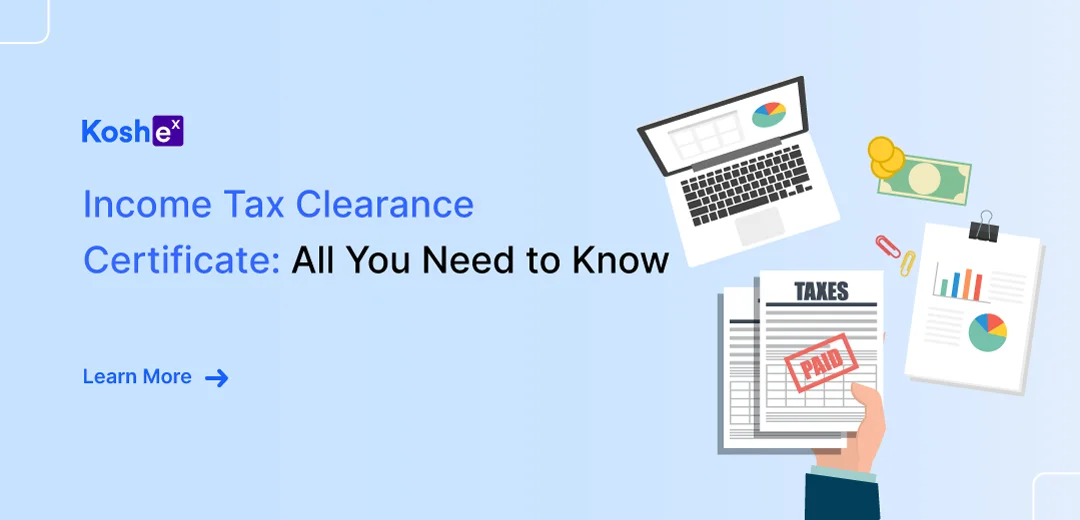
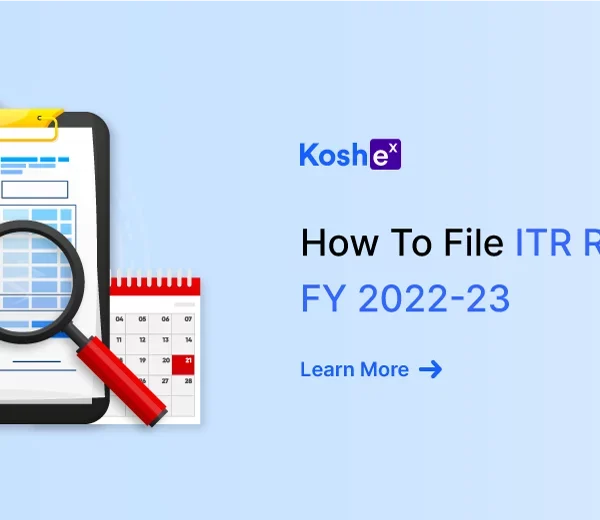
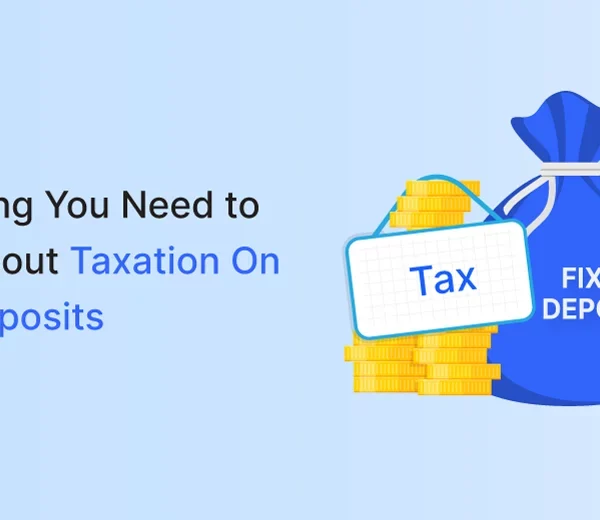
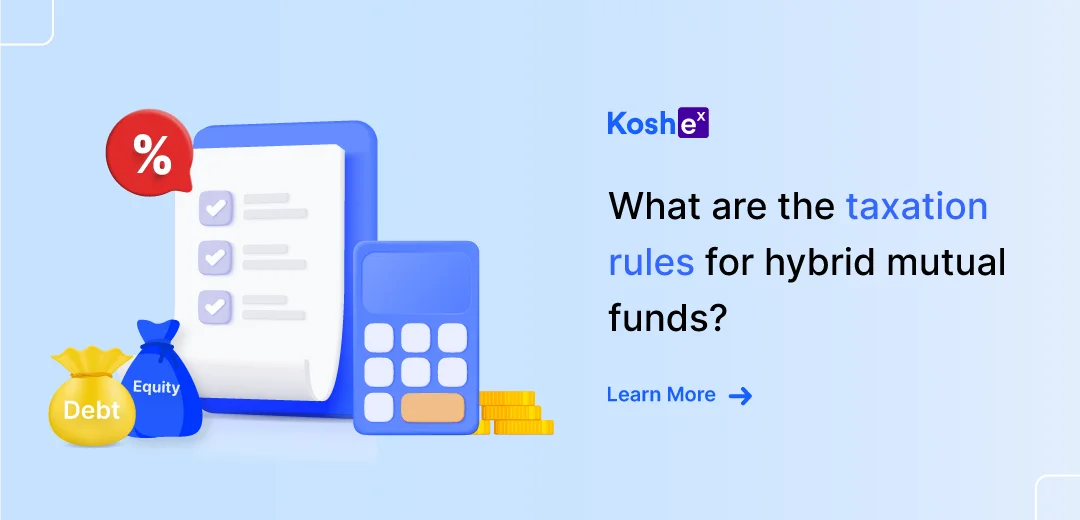

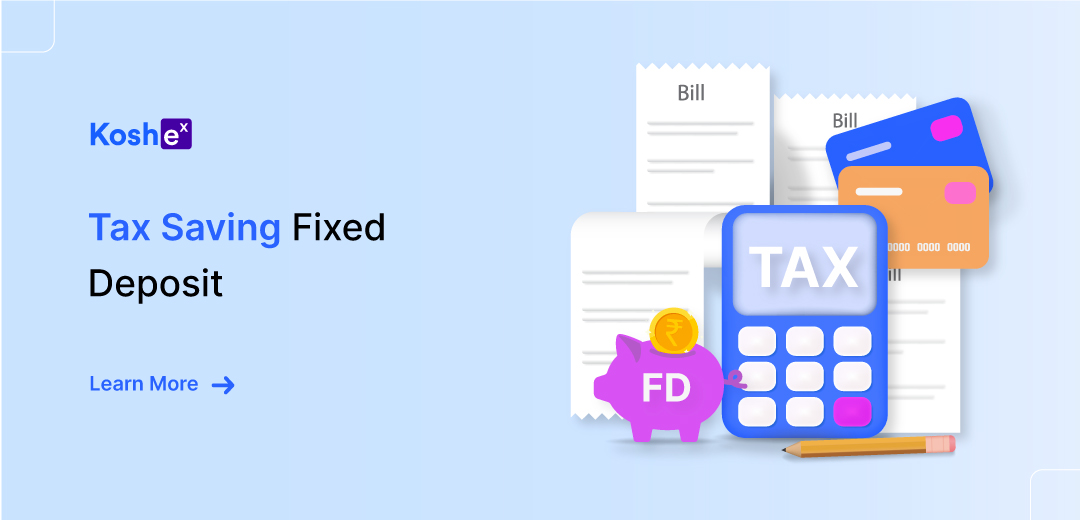


Leave a Comment